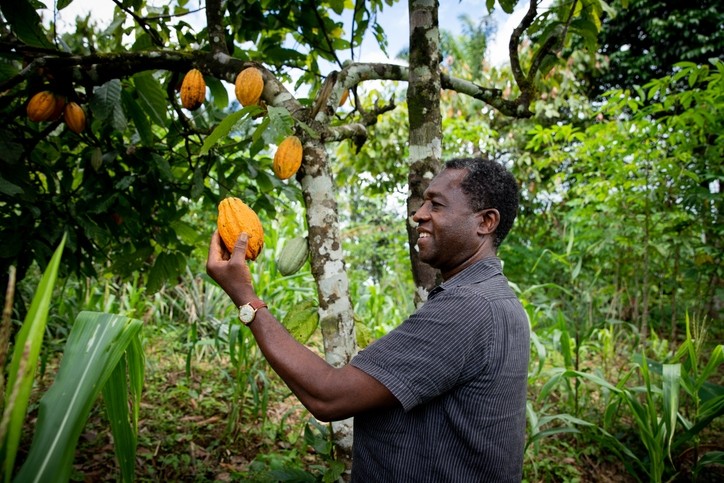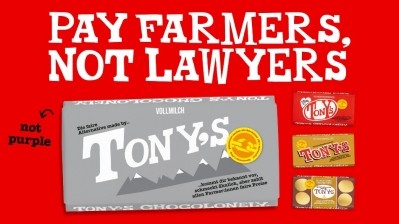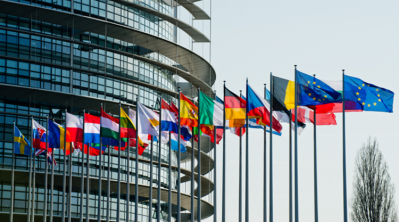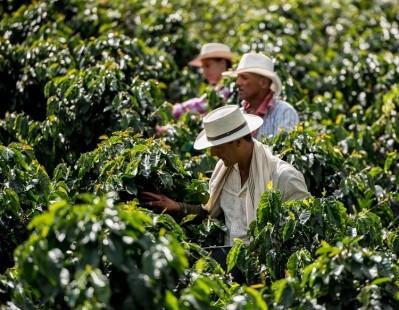Cocoa leaders demand a fair price for all

Each cocoa season, national governments set the farmgate price in a bid to ensure a fairer price for the commodity and protect the farmers who cultivate the ingredient from low prices.
Over 60% of the world’s cocoa is produced in Ghana and Côte d’Ivoire. Yet, failures to protect fairness and respect and engage in responsible actions dominate these cocoa farmers’ working lives. Dutch confectionary company, Tony Chocoloney, has warned of deep-rooted exploitation, child labour and deforestation issues in the cocoa supply chain caused by widespread poverty.
As of 1 October 2023, the farmgate price has increased from $1,225 to $1,804 per metric tonne in Ghana and from $1,344 to $1,612 per metric tonne in Côte d’Ivoire. These figures represent an increase of 47% and 20%, respectively. Price hikes for the 2023/2024 main crop season is driven by current cocoa production and market dynamics.
Far from the Living Income Reference Price (LIRP)
All companies are only obliged to pay this farmgate price. “However, cocoa supply chains are complex and pricing is volatile on the market resulting in many companies who do not engage with cocoa pricing beyond this point,” Joke Aerts, Inspire to Actress and Open Chain Lead at Tony's Chocolonely told FoodNavigator.
In a statement released on the 11 October, Tony’s expressed that while the increase in farmgate prices is a positive development for farmers, the Living Income Reference Price (LIRP) remains unmet. The LIRP was developed by Fairtrade with support from Tony’s, the chocolate brand states. It is the price that enables a living income, and has been proven to move farmers out of poverty and enable a decent standard of living.
The LIRP is considerably higher than the national prices for cocoa. In Ghana, it is an extra $316 per metric tonne, representing an 18% increase on top of the farmgate price, while in Côte d’Ivoire, it adds $714, amounting to 44% on top of the farmgate price. A small number of companies pay some premiums on top of this price, either as an incentive or a pre-finance, like certifications premiums such as Fairtrade and Rainforest Alliance.
The main factor driving the low and unmet LIRT is “the level of international prices”, Michel Arrion, Executive Director of International Cocoa Organisation told Food Navigator. These are “much too low” and are determined at the London and New York City commodity exchanges, Arrion said. Farmgate prices are a percentage of the international prices, usually 70-80%. “Should international prices be higher, farmers' revenue and living income would be higher,” Arrion added.
“The unmet Living Income Reference Price remains a consequence of corporate greed; companies are unwilling to compromise on their profits and thus do not pay a fair price for cocoa that enables farmers to have a living income,” Aerts said.
All 100% of the cocoa beans sourced through Tony’s Open Chain, the industry-led initiative by Tony’s Chocolonely that is designed to help companies to fight against exploitation in cocoa, for 14 different companies, including Tony’s Chocolonely, are priced and paid at the LIRP.
Fairtrade agrees on the reasons for the LIRP remaining unmet. “This is primarily the unwillingness of the major market players to pay more,” explained Carla Veldhuzen, Senior Advisor Sustainable Livelihoods, Fairtrade International. To the organisation, this was already notable during its minimum price review consultation in 2018.
“It became clear that we would lose very significant Fairtrade sales if we increased our mandatory minimum price to the level of the LIRP,” Veldhuzen noted. The organisation states it did lose some volume due to a limited minimum price increase.
A fair price for all
Fair incomes and the cost of living crisis affect cocoa farmers and chocolate consumers. Questions therefore proliferate the industry on how brands can get the balance right between fair incomes for farmers and affordable prices for consumers.
“Paying cocoa farmers the LIRP does not result in significantly higher prices for consumers,” says Aerts. Companies can choose how to absorb extra costs in their supply chain, which rise and fall year on year and are not all passed on to consumers in price rises.
“Tony’s expanding market share indicates that consumers do accept higher prices when they understand the story is good,” said Veldhuzen. “On the other hand, it is also about redistributing value across the supply chain, to keep consumer prices affordable,” Veldhuzen adds.
“The cost of cocoa plays a minor role in the final price paid by the consumer, between 5-10%,” said Arrion. The main costs are energy, labour, warehousing, other ingredients like sugar or dairy, financial costs and transaction costs. “If you double the price of cocoa from 5% to 10% the final price will increase from 100 to 105,” adds Arrion. Therefore, a 100% increase of the farmer’s income means 5% consumer price increase and the competition among brands may well push the prices down to approximately 100.
As part of its long-term voluntary commitment, Tony’s Chocolonely and other businesses that source cocoa through Tony’s Open Chain, including Pleese, Huel and global brands Ben & Jerry’s and ALDI announced they will pay an additional 18% on top of the national price in Ghana and 44% on top of the national price in Côte d’Ivoire.
























